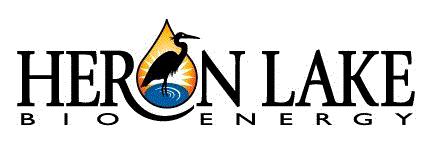In July 2013, GFE acquired controlling interest in the Company. Today, GFE controls approximately 50.7% of the Company’s outstanding membership units through GFE’s wholly owned subsidiary, Project Viking. As a result of its majority ownership, GFE has the right to appoint five (5) of the nine (9) governors to the Company’s board of governors under its member control agreement. Additionally, GFE and the Company are managed by the same executive officers pursuant to a management services agreement (“Management Services Agreement”).
In recent years, the Company experienced difficult market conditions and operating challenges. Specifically, trade disputes and policy decisions regarding the enforcement of the RFS, suppressed demand for the ethanol the Company produces. In 2020, the COVID-19 pandemic had a significant adverse effect on our business. The pandemic and related closures greatly reduced demand for travel, and thus reduced the demand for fuel, including the ethanol we produce. Reduced demand and high industry inventory levels resulted in record low ethanol prices in the spring of 2020, and as a result, we experienced negative operating margins, significantly lower cash flow from operations and substantial net losses. In response to these adverse market conditions, the Company idled its ethanol production from approximately March 30, 2020, through approximately May 31, 2020.
In July 2020, the Company experienced major issues with its boiler, which negatively impacted production. The Company operated with temporary boilers from August 2020 into January 2021. The Company determined that the purchase and installation of a new boiler would be more economical and efficient than attempted repairs to the failing boiler. The new boiler was placed in service in January 2021 at an estimated cost of approximately $5.3 million.
These market conditions and operating challenges resulted in prolonged negative operating margins, significantly lower cash flow from operations and substantial net losses. In the fiscal year 2020, the Company experienced a net loss of approximately $14.3 million.
As a result of these losses, the Company realized two adverse consequences. First, as corn prices increased in January 2021, the Company received margin calls on its corn futures positions on the Chicago Board of Trade. Because the Company did not have the cash to pay those margin calls, the Company exited those futures positions and became unprotected against future price increases. Second, the Company’s available working capital and net worth decreased significantly. Due to these decreases, the Company was out of compliance with certain loan covenants as of October 31, 2020 and January 31, 2021. These loan covenants require the Company to maintain a minimum level of working capital and local net worth.
Specifically, the Company’s loan covenants required the Company to maintain working capital of not less than $8,000,000.00 through December 31, 2020, increasing to $10,000,000.00 beginning January 31, 2021, and each reporting period thereafter. As of November 30, 2020, the Company reported working capital of $6,763,490.00. Thus, the Company’s working capital was $1,236,510.00 less than required by its loan covenants. In response to this violation, the Company’s lender provided a waiver to the working capital requirement provided that the Company maintain working capital requirement not less than $4,000,000.00.
Additionally, the Company’s loan covenants required the Company to maintain a net worth of not less than $32,000,000.00 at the end of each reporting period. As of December 31, 2020, the Company reported a net worth of $30,671,789.00. Thus, the Company’s net worth was $1,328,211.00 less than required by its loan covenants. In response to this violation, the Company’s lender provided a waiver to the net worth requirement provided that the Company maintain net worth not less than $28,000,000.00.
Despite obtaining these waivers from its lender, as of January 31, 2021, the Company forecast that it was probable that there would be future instances of noncompliance with debt covenants.
These conditions resulted in the classification of substantially all of the Company’s debt with the lender as current as of January 31, 2021. The Company had insufficient cash on hand, additional borrowing capacity, and cash flows from operations, to repay the debt if it were to come due as a result of loan covenant noncompliance. If the Company’s lender had sought to enforce its security interests, the Company could have faced the prospect of either ceasing operations or seeking Chapter 11 “reorganization” bankruptcy protection.
In response to these conditions, in December 2020 Company officers and governors engaged in preliminary discussions regarding the financial status of the Company. This included discussion regarding the potential desire of the Minority Ownership Interest to sell its entire interest to GFE. These discussions continued through mid-January 2021.
In late January these discussions became more serious when it became clear that the Company’s auditor, as part of the Company’s annual audit, would report that there was substantial doubt as to the Company’s ability to continue operating as a going concern due to the loan covenant noncompliance and the potential for significant portions of the Company’s debt to become due and payable. The prospect of this “going concern” disclosure accelerated the discussions regarding the potential transactions to address the Company’s financial

